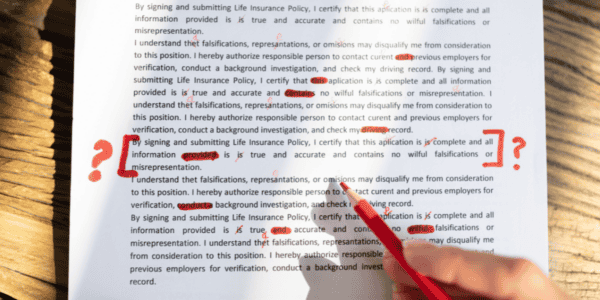I don’t know about you, but as much as I love reading, I often struggle to stay focused. Sure, some days, I’m glued to the page and can’t put a book down, but other days it’s a hard slog to keep my mind in the story instead of drifting elsewhere.
Maybe it’s an affliction of modern life, with our smartphones constantly pinging with notifications and distractions aplenty. With so much going on in the real world around us, it can be hard to keep our minds in the fictional realm of a book, even when the story is a great one.
And of course, there are times that we have to read something that we might not be that interested in in the first place, maybe for work or school. Then it’s even more of a challenge to stay focused and engaged in what we’re doing, rather than zoning out or giving up after a couple of paragraphs.
In this post, I’ll share my top twelve tips that have really helped me in my quest to train my brain to stay focused while I’m reading. Some of these tips are all about practice and preparation, while others are tools you can use in the act of reading to keep your mind where you want it to be. Hopefully, all of them will help you stay focused, so you can read more and stare at your phone less.
How to Focus on Reading – 12 Tips
Preparation is Key
Before we get to the actual reading part, here are a few ways you can set yourself up for greatness.
Tip 1: Meditate

Perhaps you already have a regular meditation practice, but if not, maybe it’s time to give it a try.
By now, we’ve probably all heard about the benefits that regular meditation can have on our minds. A regular mindfulness meditation practice can help to reduce anxiety and depression, help us feel happier and more alert, and it can also help us to stay focused and less prone to distractions.
All in all, meditation can improve our lives in a big way. Even if it’s just for 5 or 10 minutes every day, a little regular mindfulness meditation will make you a better, more focused reader.
Tip 2: Exercise

Not only does exercise improve your physical health, but it also goes a long way in improving your mental health too. In the same way that meditation is beneficial for the brain and can help you focus, so can exercise.
Countless studies show that exercise helps to improve both your concentration skills and your memory. And when you get your heart pumping, you release happy chemicals and greatly reduce stress levels, which also helps you focus.
Try reading shortly after you’ve finished exercising (within a couple of hours) to get the most benefits from this tip.
Tip 3: Remove Distractions
It’s harder than ever these days to unplug and switch off. We’re more reliant on technology than ever before, and our phones are constantly buzzing and beeping for our attention. All of this can make settling down to read more difficult. That’s why I suggest either turning off your phone, putting it into airplane mode, or at least putting it in another room where you won’t be tempted to pick it up when your mind starts to wander.
Also, be sure to minimize any background noise like the TV or music if that’s distracting for you.
Now it’s Time to Read!
Whether you have to read something boring and keep your mind on the task, or you just want some help staying focused on a good book, these practical tips will help.
Tip 4: Use Sound to Your Advantage
Some people love reading to music and say it helps them focus, whereas others find it difficult or even impossible. Music with lyrics tends to be the most distracting, but a nice chilled, ambient tune, relaxing instrumental music, or even nature sounds can lull the brain into a more calm state, which is ideal for reading. Figure out what works for you, and then plan accordingly.
There are even apps you can use where you can find specially curated music designed to improve focus and concentration. Youtube also has a good selection of these types of tracks, which research has shown can be a super effective tool. And if background noise really isn’t your thing, you could try a pair of noise-canceling headphones.
Tip 5: Try the Pomodoro Method
The Pomodoro method is a wonderfully effective time management strategy that can also help you to focus. It involves timing yourself in intervals, usually 25 minutes at a time. You concentrate on the task at hand (in this case, reading) for 25 minutes, and then reward yourself with a 5 minute break. You repeat this process four times and then reward yourself with a longer break, say 15-25 minutes.
This method is a great way to train your brain to focus for sustained periods of time. Eventually, your mind will learn that it can still indulge in distractions, but only during the regulated breaks. The Pomodoro method is also super helpful for studying, working, and any activity that involves prolonged focus.
Tip 6: Set Milestones
A great way to make it through more pages of a book is to set yourself some achievable milestones or goals. For example, if a book is broken down into short chapters, you might tell yourself that you will read three full chapters and then have a break or move onto another activity. If the chapters are particularly long, it might just read one chapter at a time.
You can also do this with page numbers too. Choose how many pages you will get through in one sitting (remember to be realistic) and stick to it.
Setting these reading targets for yourself, especially if the text is boring or difficult to comprehend, is a great way to get a sense of satisfaction from your reading. It encourages you to keep going, meet your targets, and get to the next milestone.
It can also be helpful to write down your targets on a piece of paper. Having something physical written down helps to solidify it in your mind, plus you get that awesome sense of satisfaction when you get to check it off as ‘done.’
Tip 7: Use a Pointer

To help you stay focused and maintain your flow when reading, try using a pointer that your eyes can follow along with. This could simply be your finger, or, if the text is smaller, it might be better to use a tool. The rounded end of a pen or pencil works perfectly, or even a chopstick or a stylus.
Using a pointer helps your eyes, and in turn, your brain, to stay focused on each word you’re reading. It stops you from scanning around the page unnecessarily and can actually help you to read the information faster, with less mental effort.
Tip 8: Make Notes or Annotate

You might not use this tip if you’re reading a novel for pleasure, but when it comes to reading for work, school, or learning, then making notes can be useful.
You can do this by annotating the pages of the book or making notes on a separate piece of paper as you go. Notetaking helps you to absorb the information in the text and get your head around difficult concepts or ideas.
It also helps you to remember the text for much longer after you put the book down, which is extra handy if you’re studying for a test or need to remember the specifics of what you’ve read at a later date.
Tip 9: Use Audiobooks
If you struggle to sit still and dedicate time to reading when you know you have a to-do list a mile long, then audiobooks could be a great solution. Audiobooks allow you to multitask, so you could be cleaning your kitchen or crocheting a blanket at the same time as taking in a good book.
You can even put your headphones on and head out for a walk in nature while you’re listening to a book. If you’ve tried everything and still can’t focus on reading while sitting still, then audiobooks are a real saving grace.
Tip 10: Reward Yourself When You Succeed
Whenever you’ve had a successful reading session, don’t forget to give yourself a reward; you deserve it! Whatever the methods and tips you’ve used to get you there, you’ve achieved your goal, so it’s good practice to do something to keep your mind happy afterward.
Whether it’s having a tasty, healthy treat or going for a walk in the fresh air, do something you enjoy to reinforce the habit of reading. This will help to keep you motivated the next time you sit down to read too.
Tip 11: Know When to Quit
Some bookworms might disagree, but I’m a big supporter of knowing when to quit when it comes to reading something you don’t enjoy. Maybe it’s a novel that a friend recommended or a book that’s received rave reviews online. Either way, just because someone else loved it, that doesn’t mean that you have to.
If you’re already knee deep into the book and you’re still struggling through it without enjoying it one bit, I think it’s healthy to give yourself the permission to move on to something you do like. If a book feels like a hard slog, it can reinforce the idea that reading itself is hard, which is the opposite of what we want to achieve! That’s why I always recommend that if you’re truly don’t like a book you’re reading, put it down and pick up something new.
Don’t see it as a failure. You gave it a shot, and it wasn’t for you. You can always revisit the book a few months or a year from now to see if you feel differently. We all fluctuate in our tastes and preferences, and sometimes we just need to have a different mindset when it comes to reading a particular book.
Tip 12. Practice Makes Perfect

We all know it’s true; the more you do something, the better at it you become. So try to make reading a regular practice in your life. Do it daily if you can, even if it’s only for fifteen minutes. The more you flex your reading muscles, the easier it will become, and the more fantastic books you can enjoy.
Conclusion
I hope these tips help you to improve your focus in your own reading. Whether it’s for pleasure, work, or study, reading isn’t always easy. There are distractions everywhere, and our brains love to wander. But don’t feel bad, simply follow these tips, and you’ll see an improvement soon enough. Happy reading!
Check out these other great posts!
Harry Potter Reading Level Guide by Age & Grade
7 Best Bed Rest Pillows for Reading
The 7 Best Sites and Apps to Read Manga



